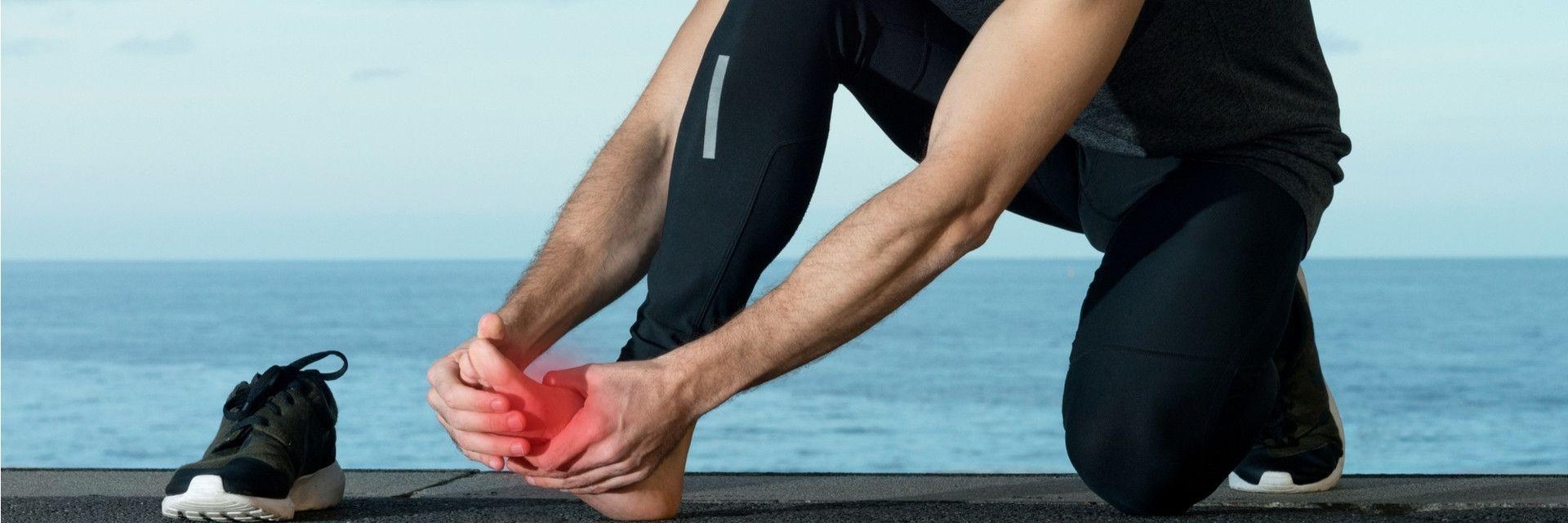September 21st, 2020
Stay-At-Home Feet in the Time of COVID

Dr. Elena K. Wellens is a podiatrist, specializing in the non-operative treatment of complex foot and ankle disorders, trauma and sports medicine.
The new era of the pandemic has moved many of my patients from the workplace to home.Instead of spending the day wearing shoes in the office setting, bare feet and socks is now the new norm.This has resulted in a new wave of plantar fasciitis and Achilles tendonitis in my patients that may be a flare up of a previous condition or a new problem.
Understanding Plantar Fasciitis and Achilles Tendonitis
The Achilles tendon attaches the calf muscles to the heel bone.It is a very powerful tendon and the position of the foot can affect the way it works.The plantar fascia is a band of tissue on the bottom of the foot that attaches to the heel and extends to the toes.It is an important supportive structure for the arch.
In patients with a flatter foot type or a very high arch the fascia can become irritated with constantly walking bare foot, particularly on hard surfaces such as hardwood floors.Supportive shoes and arch supports can help reduce excessive stress on both the Achilles tendon and plantar fascia.
I have been recommending to my patients to at least wear a sandal with a firm bottom and an arch while at home to help reduce the strain that is causing their pain and inflammation.
Supporting Your Feet While Working from Home
In addition to shoes and arch supports, stretching exercises can also help.I review various exercises with my patients that will help lengthen the calf muscles in order to reduce stress on the Achilles tendon and plantar fascia.Other modalities that may also help include ice, heat, NSAIDS (if medically safe for the patient to take), custom molded orthotics, and physical therapy for patients not responding to treatment at home.
There is a small percentage of patients who do not respond to conservative treatment.I do offer the minimally invasive Tenex procedure for those patients.I perform this at the surgical center under local anesthetic.It involves making a small incision and breaking up the inflammatory tissue using a fine instrument.This also initiates the healing cascade in the body as well.Over the next several weeks following the procedure the body continues to heal the inflamed tissue and creates new healthy tissue. This helps reduce and eliminate pain.
Achilles tendonitis and plantar fasciitis can be painful and debilitating conditions if left untreated.By catching it early and starting treatment quickly patients can prevent long -term chronic pain and permanent damage to these tissues.
I am available to see patients in the Center City office and Northeast Philadelphia office. I would love to help you get back on your feet pain free!



